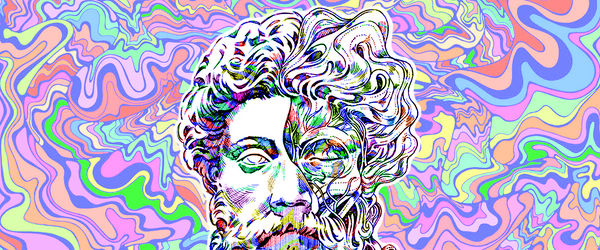ChielReemer • • 7 min read
7 Extraordinary Books You Need to Read to Become Ecoliterate
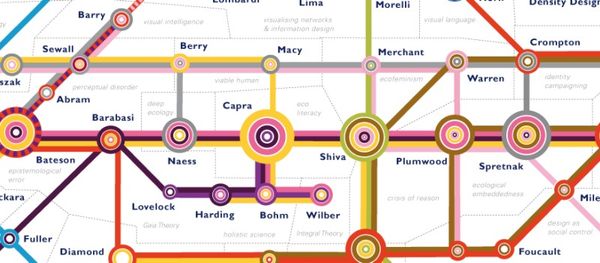
Complex networks and their unpredictable nature are rapidly transforming the world around us. The challenge is to learn to live with life, because we are embedded in it. We are systems, nested within systems, nested within systems. Luckily, great minds have seen this ‘crisis of perception’ coming and they have shared their thoughts with us. Thoughts that are inspiring, sometimes shaking the ground beneath our feet and sometimes giving us hope-filled vistas on the future. Thoughts that connect the dots and show us an endlessly complex system, called life, continuously emerging in ever more complex forms.
What is Ecoliteracy?
An ecoliterate is someone who has learned (to some degree, in some way) that human life is embedded within larger ecosystems that provide the conditions for it to develop. He or she sees that the entire planetary ecosystem is in great turmoil, most likely because of the way we as a species act. He or she therefore understands that current human society is in a transitional crisis: emergent properties are interfering with current structures. These structures will transform or disappear. Ecoliterates see the old structures crumbling and new ones emerging. This is personal and global, private and public.
The (aspiring) ecoliterate could, in my opinion, come a long way in creating his own understanding of living systems, by reading these
7 classic books. You can choose to focus on the biological, the social, the technological, the mathematical, the spiritual, or any other area; because all are affected. What these books have in common is that they share a worldview in which all is connected to all and the subjective experience is seen as being fundamental to reality itself.
1. Gregory Bateson – Steps to an Ecology of Mind
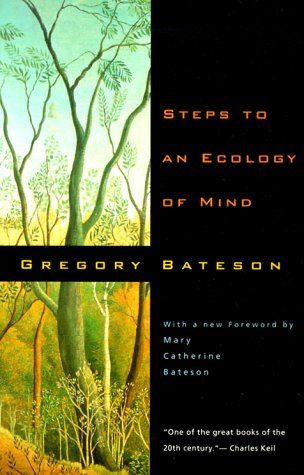
It was Gregory Bateson who said ‘All experience is subjective‘. Even today that is going against the grain of main stream science, which has founded its hopes and beliefs in the possibility of objective perception. Bateson was one of the founders of systems theory, cybernetics and ecological thinking. If you do not know about this man and his work, you cannot seriously call yourself an Ecoliterate. You have been warned!
Free PDF-version of Steps to an Ecology of Mind
2. Fritjof Capra – The Web of Life: A New Scientific Understanding of Living Systems
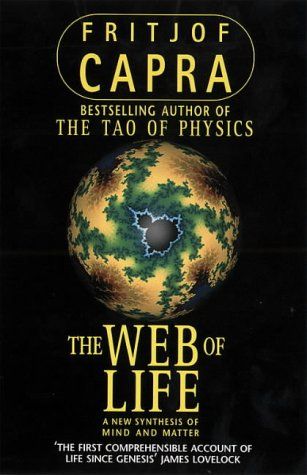
A brilliant and important book. Actually, anything written by Capra is quite brilliant and important. This one lays the foundations for a new scientific approach to the study of living systems. Beautiful starting point for Ecoliteracy!
Other Books by Capra:
3. Lynn Margulis – Symbiotic Planet: A New Look at Evolution
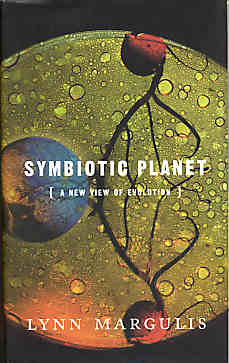
Lynn Margulis is the founder of modern-day endosymbiotic theory, which states that certain organelles within eukaryotic cells (plants and animals) have originated as separate, simpler cells and through symbiosis have merged into one organism. This theory, which is now widely accepted after a long struggle, sheds a whole new light on evolution, one which is relevant to us because of the implied shift of perspective. Instead of competition, coöperation now becomes the most important driving force behind the evolution of (complex) life. Darwin’s theory of natural selection and survival of the fittest is not disregarded but it does take a back seat to the endosymbiotic theory. In the book ‘Symbiotic Planet’ Margulis tells the story of the evolution of life on our planet, from the perspective of symbiosis. She makes it easy for everyone to understand and the story is utterly mesmerizing. To understand how simple, single-celled organisms could evolve into the complex multi-billion celled mammals opens your mind (and heart) to a beautiful new way of looking at life. Life through the lens of endosymbiotics is a lot less harsh and cold, make sure to read it!
For more information read Gaia is a Tough Bitch or check out this three part interview below:
4. Jay Griffiths – A Sideways Look at Time

This book (also and maybe better known by its second title ‘Pip Pip’) is arguably the best written one in this list. Boy, can Griffiths write! A whirlpool of amazing facts, associations and theories that will get you hooked from page one. Content, style and form are so much intertwined that the book itself becomes an example of what it so passionately tries to convey to us: that cyclical time is beautiful and should be honored again in our society. If you want to know what cyclical time is, how male time differs from female time and how the church used clocks in their bell towers to infiltrate and regulate our lives: read this radical book that will get your head spinning, your heart racing and your belly in a knot out of sheer inspiration. You could argue that her other major work “Wild: An Elemental Journey” is more relevant to the student of ecoliteracy (and I wholeheartedly recommend that title, too!), but time is crucial to our reality and rethinking time and the role it plays in society is elementary to the creation of sustainable communities. Ecoliteracy is a multi-leveled thing, where every perspective is as valid as the next, but some are more inspiring than others: read A Sideways Look at Time! It blew me away, it might do the same to you.
5. James Lovelock – Gaia: A New Look at Life on Earth
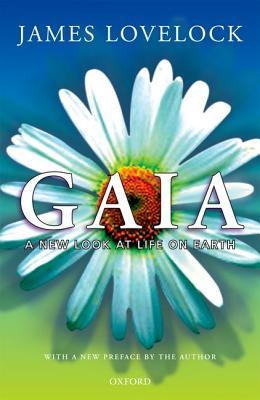
By laying the foundations of the Gaia Theory, which views the Earth as a living, self-regulating organism, James Lovelock has secured a place in the Hall of Fame for Ecoliterates (to be build at a later date…) and has proven an inspiration for many other scientists, thinkers and artists. Not the least of those is Lynn Margulis herself, who you just got introduced to. Read this book and start getting a feel for Earth as a living, breathing and intelligent being.
6. Pierre Teilhard de Chardin – The Phenomenon of Man
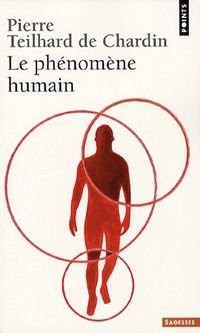
Teilhard de Chardin was a French Jesuit priest and philosopher, who developed the idea of the Noösphere in the first part of the 20th century. Don’t know what the Noösphere is? No ecoliterate should have to say that! Central to his thinking was the idea that life is evolving towards the so-called “Omega Point“: the highest possible level of complexity and consciousness. He postulated that it was this Omega Point that attracts life (like a magnet) and makes it evolve. Teilhard de Chardin was way ahead of his time and this got into trouble with his Jesuit order. Not until recently have his ideas come into full light and have people discovered the similarities between de Chardin’s ideas and those of modern scientists. In this book he reveals his ideas about the Noösphere and human evolution as part of the evolution of consciousness. A beautiful, warm-hearted book to inspire you.
7. Richard Tarnas – Cosmos and Psyche
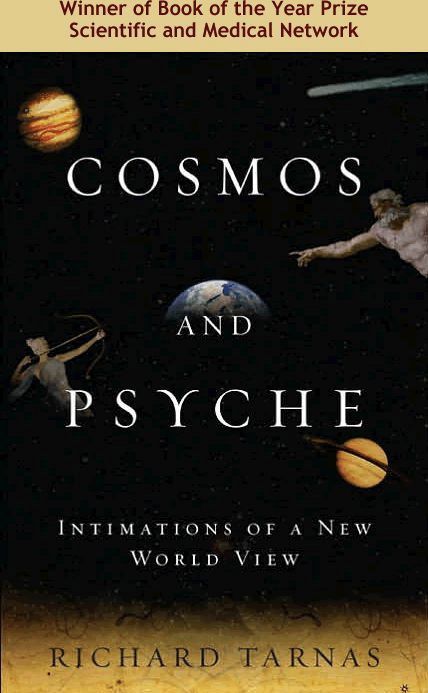
This one needs some explanation. This is a book on astrology. “Excuse me?” Yes, astrology. “Well, it’s been good so far, guess I’ll skip this one, thanks!” No no no! Don’t leave! This might be the most important scientific accomplishment of our era! Really! “But it’s about astrology! It might as well be about Reptilians taking over the Earth!” That’s not fair. Give me a chance. Or rather: give Richard Tarnas’ mind-boggling book a real chance. Never before has someone taken it upon him to structurally, painstakingly compare human cultural developments to the relevant positions of planets in our solar system. And not only does he do this with a rigorous attitude, he also does it with amazing creativity and imagination. And in spite of its too many utterly preposterous astrological beginnings this ground-breaking book has amassed a big following and prestigious awards. The scientific community can no longer dismiss so easily the notion of life on this planet being affected by the planets and stars that surround it. So with this book, the last one on this list, I want to challenge you to think of ecoliteracy beyond Earth’s atmosphere and to entertain the possibility of living in sync not just with other people, not just with all living organisms on this planet, not just with Gaia as a living organism, but with the universe as an integrated whole, developing life towards ever greater levels of complexity.
Thank you for reading.
Have a look:
Gregory Bateson – Steps to an Ecology of MindFritjof Capra – The Web of Life: A New Scientific Understanding of Living SystemsLynn Margulis – Symbiotic Planet: A New Look at EvolutionJay Griffiths – A Sideways Look at TimeJames Lovelock – Gaia: A New Look at Life on Earth
The Phenomenon of Man – Pierre Teilhard de ChardinRichard Tarnas – Cosmos and Psyche
Ecoliteracy map used in the header can be found here.


![Seneca’s Groundless Fears: 11 Stoic Principles for Overcoming Panic [Video]](/content/images/size/w600/wp-content/uploads/2020/04/seneca.png)






